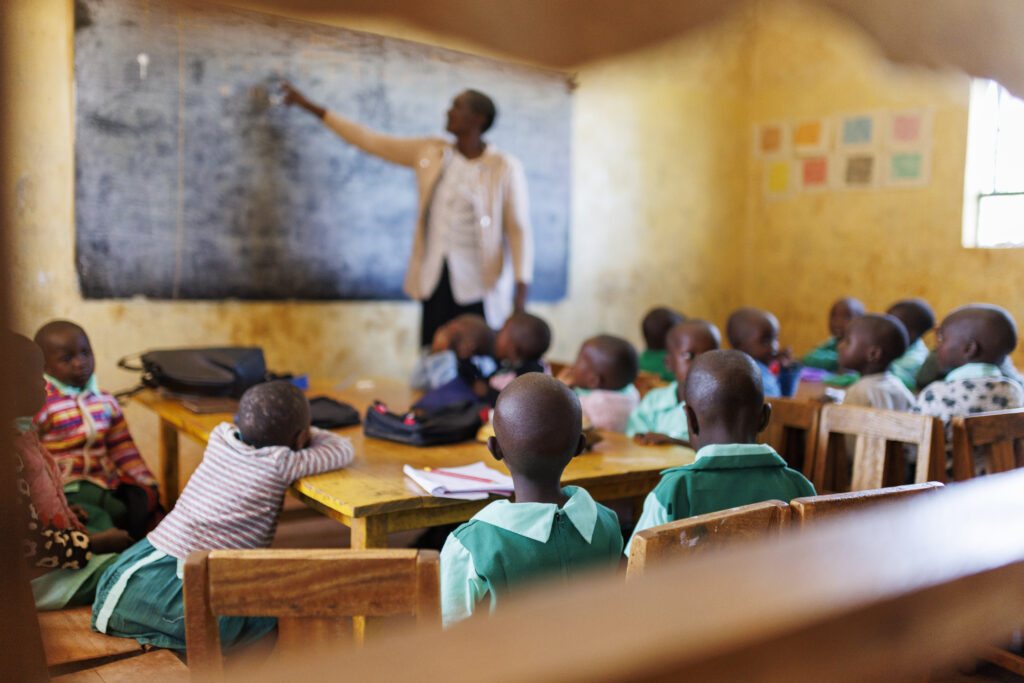The Importance of Clean Cooking in Schools, Hospitals, and Other Institutions
Institutional cooking, including kitchens in schools, hospitals, and other public facilities, plays a major role in health, education, and environmental outcomes.
Globally, roughly 466 million children receive at least one school meal a day. Yet in many countries, these meals are still prepared over open fires or polluting stoves—not by choice, but because affordable, reliable alternatives don’t exist. In sub-Saharan Africa, school kitchens burn an estimated 8 million tonnes of firewood annually, releasing 12–14 million tonnes of greenhouse gases. Daily meal preparation exposes children, teachers, and kitchen staff to harmful smoke from firewood and charcoal, increasing the risk of respiratory and noncommunicable illnesses and undermining the very health and education goals that school feeding programs aim to support.
 Photo: Bettering Human Lives Foundation
Photo: Bettering Human Lives Foundation
Heavy reliance on firewood and charcoal also strains institutional budgets, accelerates environmental degradation, and contributes to climate change. Transitioning institutions away from polluting cookstoves and fuels and toward cleaner, more efficient cooking solutions can significantly reduce pressure on forests, cut carbon emissions, and create safer, healthier cooking environments for entire school communities. Because of their scale and consistent demand, institutions are uniquely positioned to drive meaningful progress that benefits both people and the planet.
Read more about school energy transitionsCCA’s Systems Approach to Institutional Cooking
CCA works closely with governments, enterprises, civil society, and investors to advance clean cooking in schools, hospitals, and other institutions.
 Photo: Kenya’s Office of the Special Envoy for Climate Change
Photo: Kenya’s Office of the Special Envoy for Climate Change
As a member of the School Meals Coalition, CCA supports global efforts to ensure that school feeding programs include and advocate for clean cooking solutions. Through its partnerships, CCA provides technical assistance, supports policy development, strengthens supply chains for modern fuels and technologies, and helps countries mobilize finance for large-scale transitions. By aligning public-sector leadership with market-based approaches, CCA helps institutions move away from polluting fuels and adopt clean cooking solutions that improve the lives of entire communities.
Read the opinion piece by Amb. Ali Mohamed and Benson IreriMomentum for Institutional Cooking in Kenya
In Kenya, CCA is working directly with the government to advance institutional clean cooking.
 Photo: Kenya’s Office of the Special Envoy for Climate Change
Photo: Kenya’s Office of the Special Envoy for Climate Change
CCA launched the inaugural Clean Cooking Delivery Unit (DU) in Kenya, embedded within the Office of the President and reporting directly to Special Climate Envoy Ali Mohamed. The DU works across government to strengthen coordination, rapidly address bottlenecks, support clean cooking implementation, and translate political will into action and investment. The Office of the President in Kenya has formally requested CCA’s support to lead a national transition of school cooking away from polluting fuels.
The DU hosted the first-ever High-Level Summit on Unlocking Finance and Investments for Institutional Clean Cooking in Kenya, held in Nairobi on October 28 and 29, 2025. Over 250 stakeholders from education, health, environment, finance, and the private sector participated. During the summit, participants committed to the Nairobi Action Plan, a roadmap to achieve a full transition to institutional clean cooking by 2028. CCA is working alongside the DU and the Office of the Special Envoy for Climate Change to mobilize investment, align policy, and advance large scale clean cooking transitions in schools, hospitals and prisons across Kenya.


